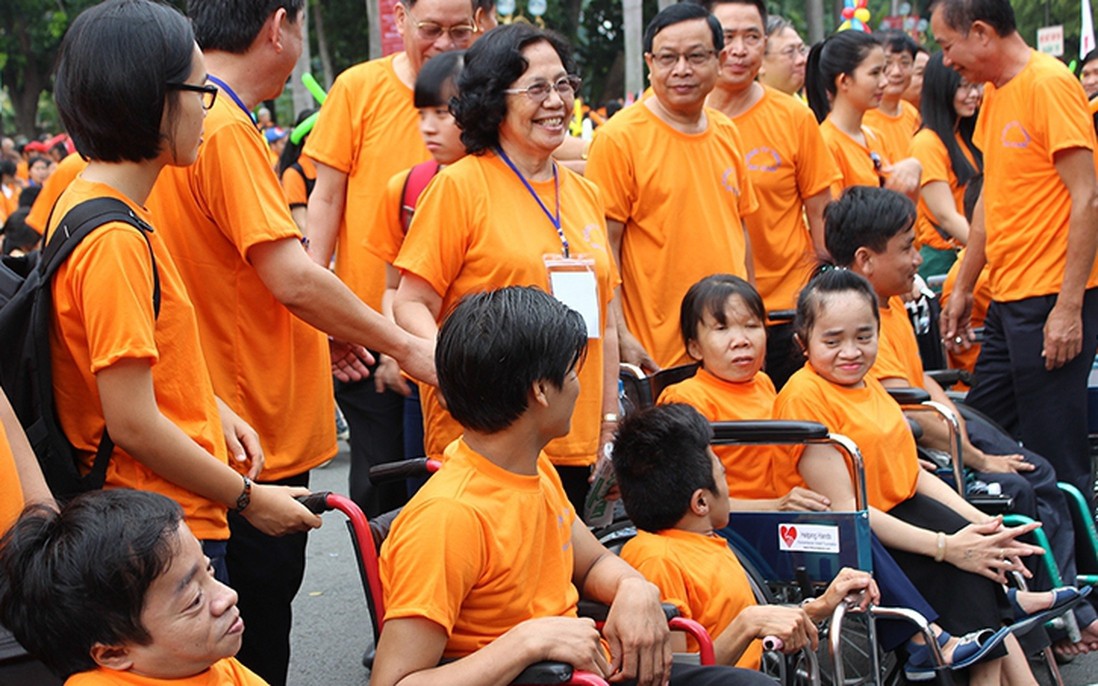
After liberation, Ho Chi Minh City had a population of more than 3 million people, of which women accounted for more than 50%. When the country was unified, women not only actively participated in building the revolutionary government, but also played an important role in the city's post-war reconstruction activities.
Contribute to eliminating illiteracy for working people
Ms. Nguyen Thi Yen Thu, former Deputy Director of the Department of Education and Training of Ho Chi Minh City, President of the Association of Former Teachers of Ho Chi Minh City , is 85 years old this year. Belonging to the generation of students from the South who were mobilized to study in the North, in 1965, Ms. Thu registered to go to B, returned to the South to participate in teaching, improving people's knowledge, and training the next generation in the context of fierce war. In the first years after the country's reunification, she was assigned to be the Deputy Director of the Department of Education and Training of Binh Thanh District (Ho Chi Minh City).
Recalling that time, Ms. Thu said: "Although the city was not destroyed by war bombs, it faced many difficulties: high unemployment rate, many children were out of school, illiteracy among the working people... Schools were arranged unevenly, there were many in the inner city and few in the suburbs. The schools were taken over by the revolutionary government, and the management team was assigned to the Department of Education... mainly teachers from the North. All levels of education still opened on September 5, 1975. At first, I did cultural supplementary work, eliminating illiteracy because at that time there were still many people who could not read or write. I organized classes, assigned teachers to teach. Many days I waded in high tide to check whether the teaching and learning were effective or not, whether people really knew how to read after studying."
The revolutionary government paid special attention to eliminating illiteracy among all classes of people; encouraged them to participate in the mass education and cultural supplementary education movement. After only 2 years of liberation, the city had eliminated illiteracy for 98% of the working population.
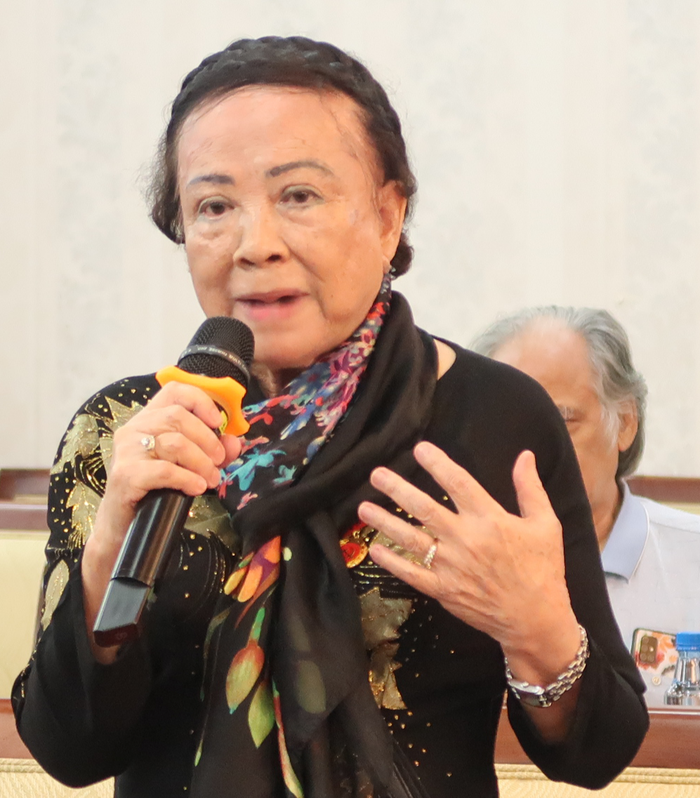
The economic life of teachers in the early years of liberation also faced many difficulties. However, teachers still tried to contribute to the cause of educating people. "The subsidy period was very difficult, both teachers and students were very poor. When I became the principal of Vo Thi Sau High School, the only means of transportation was a rickety bicycle. Most of the students' families were also in difficult circumstances. I remember one time, a student arrived late to school, had to climb the fence, so the security guard took him to the principal's office. At that time, he confessed that he only had one uniform, so he had to wait for his clothes to dry before he dared to go to school. Even now, when I think about it, I still feel sorry for him," Ms. Thu recalled.
After liberation, some children of soldiers and officers of the old regime encountered difficulties in having their background checked to go to school. Therefore, in some cases, Ms. Yen Thu had to make a bold decision so as not to lose their opportunity to study. Such was the case of student Ngo Ba An, from Ben Tre. His brother was an officer of the old regime, and his sister was a former revolutionary prisoner who had been imprisoned in Con Dao. Ba An was a good student and energetic, but when he entered high school, he was not allowed to continue studying due to his background. After listening to An's sister's explanation of the situation, Principal Yen Thu decided to accept An into the school: "I think the past is over, if we want to build the country, we should not discriminate against the children of the old regime, what wrong did those children do?", Ms. Thu recalled.
Thanks to teacher Thu's bold decision, Ba An was able to continue his studies and became the city's valedictorian. Later, he studied hydraulic engineering and made many contributions to society.
More than half a century of seeking justice for Agent Orange victims
At the age of over 80, Professor, Doctor Nguyen Thi Ngoc Phuong, former Director of Tu Du Hospital (HCMC) , still works regularly at the clinic, attends meetings, conferences and scientific seminars. As the founder of in vitro fertilization in Vietnam, Doctor Ngoc Phuong has brought hope of becoming parents to thousands of infertile couples.
Sharing about the historic moment of the country on April 30, 1975, Dr. Phuong recalled: "The city was very chaotic at that time, many doctors left the hospital out of fear, even trying to leave Vietnam. Meanwhile, pregnant women still needed someone to deliver their babies. I took all three young children to the hospital, staying for more than a month to be on duty and support the pregnant women."
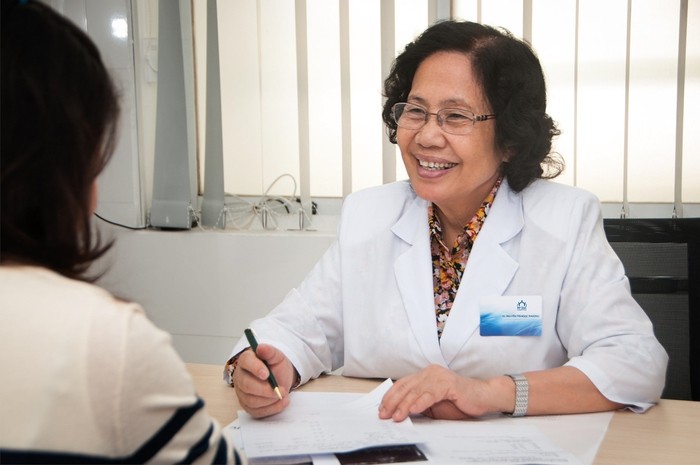
After liberation, she had the opportunity to go to France to reunite with her husband, who had been studying there since 1974. However, because of her patriotism and affection for poor patients, Dr. Ngoc Phuong refused a comfortable life in a foreign land to stay in Vietnam to contribute. "France or America does not lack doctors, but the people in my homeland really need help," she shared. In addition, the example of her father, who was arrested and nearly executed 6 times for participating in the resistance, further urged her to stay attached to her motherland.
Her journey to seek justice for Agent Orange victims began in 1966. With her expertise in obstetrics and gynecology, Dr. Phuong often witnessed cases of families whose children were born with disabilities. That prompted her to research documents and collect scientific evidence to prove that Agent Orange not only harms the environment but also seriously affects human health. In addition to documents kept at Tu Du Hospital about children born with disabilities, she also searched for theses by doctors at medical schools related to this issue. She realized that in 1952, children with disabilities were only scattered but increased the most from 1969 onwards. She saw the increase in children born with disabilities proportional to the time when toxic chemicals were sprayed in Vietnam. She reported this to the hospital's board of directors and the Ho Chi Minh City People's Committee.
Since then, Dr. Ngoc Phuong has not only regularly traveled to areas that were once "plowed by bombs and bullets" to examine and treat people, but has also conducted in-depth research. The results showed that people who lived or participated in the resistance war in areas sprayed with Agent Orange had a rate of giving birth to children with birth defects 3-4 times higher than normal. In 1983, she published the results of this research in a scientific journal in the UK. This was also a turning point that marked her determination to pursue to the end the research on the impact of Agent Orange/dioxin on the Vietnamese people.
In 2004, when the Vietnam Association of Victims of Agent Orange/Dioxin (VAVA) was established, Dr. Ngoc Phuong assumed the role of Vice President. In this position, she made many contributions to bringing the voices of Agent Orange/Dioxin victims to the international community, striving to fight for justice for them.
Currently, although retired, Dr. Ngoc Phuong is still working hard. "Retiring and just staying at home is very sad. Therefore, I continue to work. After more than 50 years in the medical field, I want to pass on to the younger generation of doctors valuable experiences, things that cannot be found in any book. I hope that the next generations will understand, sympathize and be willing to support victims affected by Agent Orange," Dr. Ngoc Phuong shared.
After liberation, with a population of over 3.39 million people (1976), of which women accounted for 53.1%, female workers played an important role in the city's economic development. Women also actively participated in building and consolidating the revolutionary government; in 1976, the entire city had over 1,000 female cadres working in the government apparatus, mainly at the grassroots level.
Women's Unions at all levels in Ho Chi Minh City actively carry out activities to overcome the consequences of war, mobilize the masses to remove bombs and mines, build irrigation works, reclaim land, promote production and animal husbandry...
According to the book "85 years of Ho Chi Minh City women's movement (1930 - 2015)", volume 2
Source: https://baolaocai.vn/50-nam-thong-nhat-dat-nuoc-phu-nu-va-cong-cuoc-tai-thiet-sau-chien-tranh-post400444.html



![[Photo] Prime Minister Pham Minh Chinh chairs conference on anti-smuggling, trade fraud, and counterfeit goods](https://vphoto.vietnam.vn/thumb/1200x675/vietnam/resource/IMAGE/2025/5/14/6cd67667e99e4248b7d4f587fd21e37c)






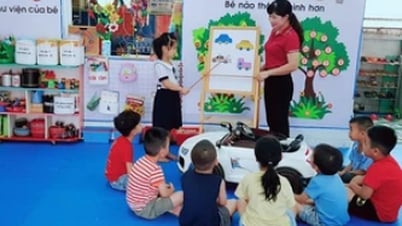



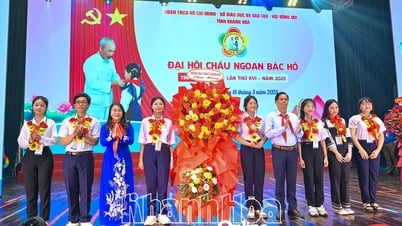
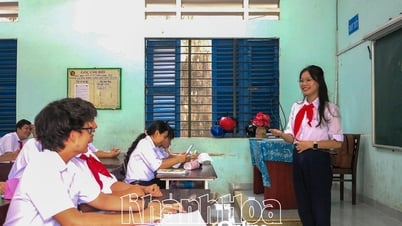
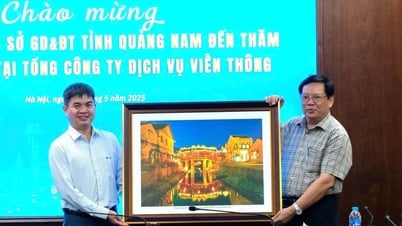





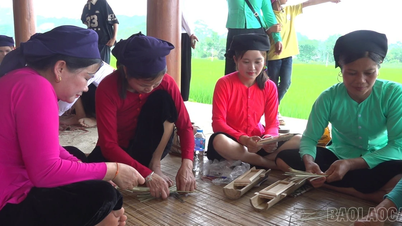
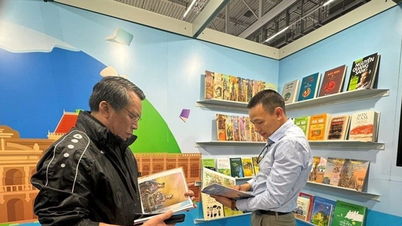

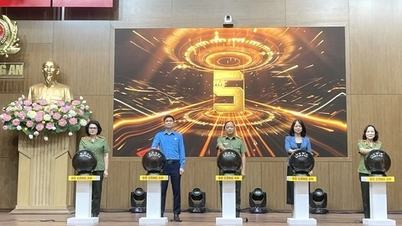
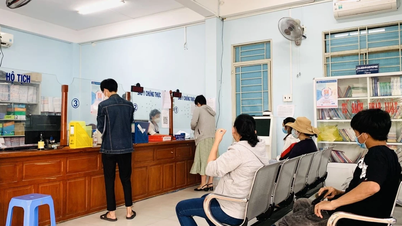

































































Comment (0)